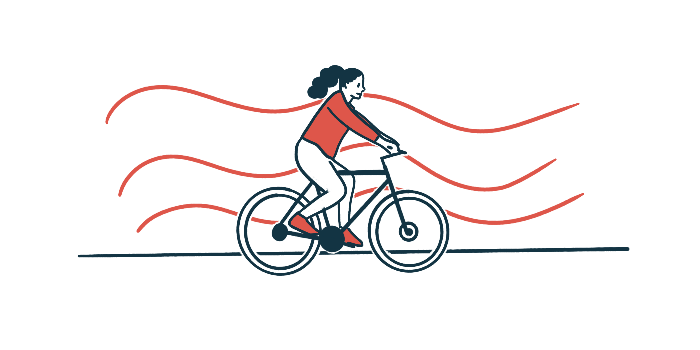High-intensity interval training of similar benefit to moderate exercise
Meta-analysis of studies finds MS patients gain with both, though demands differ

High-intensity interval training (HIIT) and a longer but more moderate exercise regimen seem to be of similar benefit to multiple sclerosis (MS) patients in terms of fatigue, body composition, and most cognitive and cardiovascular fitness domains, according to a recent meta-analysis.
In a limited number of studies, HIIT did lead to greater improvements in oxygen consumption during exercise — a measure of cardiovascular fitness — and in some areas of memory than what is called moderate continuous exercise (MCT).
“Our findings suggest that HIIT is not superior to MCT in [people with MS],” the researchers wrote, noting that available data were insufficient to draw definitive conclusions.
Still, it’s possible that HIIT, characterized by short bursts of intense exercise, “may attain similar therapeutic results with MCT in a shorter time,” they added.
Exercise in general is considered to help ease various symptoms of MS
The study, “Is High-Intensity Interval Training more effective than Moderate Continuous Training in Rehabilitation of Multiple Sclerosis: A Comprehensive Systematic Review and Meta-Analysis,” was published in the journal Archives of Physical Medicine and Rehabilitation.
An appropriate physical fitness regimen for MS is considered to offer patients’ motor, cognitive, mood, and life quality benefits. Guidelines recommend that people with mild-to-moderate disability engage in moderate intensity exercise a few times each week.
HIIT is a form of exercise characterized by short bursts of high-intensity aerobic exercise (30-60 seconds) that alternate with less intense periods of active recovery. This leads to higher heart rate spikes than MCT, which is characterized by lower intensity exercise undertaken for longer periods of time (30-60 minutes).
Some studies suggest that HIIT can help MS patients to gain in physical function, cognition, memory, and cardiorespiratory health, while easing fatigue.
“HIIT’s main advantage is the shorter duration required to achieve a greater benefit … in comparison to the low to moderate intensity of aerobic exercises,” the researchers wrote.
To learn more, scientists led by those in Turkey conducted a systematic review and meta-analysis of previously published studies on these two exercise approaches in MS patients.
Their analysis included only studies where HIIT was conducted using a stationary bike or recumbent stepper, and not a treadmill, which they noted may not be suitable for patients with mobility issues.
“We aimed to focus on exercise modalities that are more universally applicable to individuals with various levels of mobility,” the researchers wrote.
No significant differences seen in fatigue levels, most cognitive domains
Their review covered 22 studies involving 957 MS patients. A meta-analysis of 11 randomized and controlled trials that compared HIIT to MCT then was performed to investigate the relative clinical benefits of each approach.
Overall results did not show significant differences between the two in terms of fatigue, body composition, disease biomarkers, and most cognitive domains.
However, HIIT was associated with greater gains in VO2-max, or the maximum amount of oxygen a person can consume during exercise, across eight studies. While a higher VO2-max reflects better cardiovascular fitness, no differences were seen in other measures of cardiovascular fitness, such as heart rate.
Moreover, HIIT led to significantly greater benefits in a measure of memory function — verbal retrieval and information recall — than did MCT across three studies that evaluated it, with no differences in other cognitive tests.
Altogether, the researchers noted that findings do not support a significantly greater benefit of HIIT over MCT for MS patients.
They highlighted that analyzed trials involved starting a HIIT program without first establishing the patients’ baseline fitness level, a point the researchers considered a “critical oversight.” They proposed that future MS exercise studies allow for a moderate-intensity exercise program prior to starting HIIT.
“By incorporating this step, researchers can potentially optimize the effectiveness of the intervention,” the scientists wrote. Such an approach also “reduces the likelihood of encountering adverse side effects during subsequent sessions of HIIT protocol,” they added.
The exact HIIT exercise protocols differed across individual studies in terms of how long the high-intensity intervals lasted, the length of the total exercise program, and whether HIIT or MCT were combined with other exercise modalities, like resistance training. Patients’ median disability levels also varied widely among the studies, the scientists noted.
These limitations, along with only a limited number of studies being included in the meta-analysis, meant that “no definitive conclusions could be drawn from the available evidence,” the researchers concluded.







